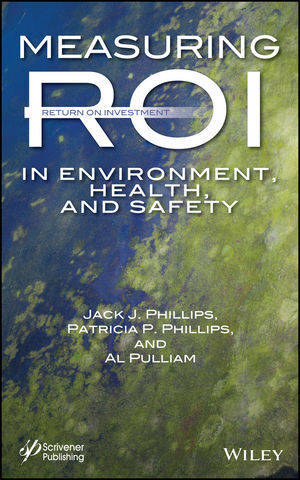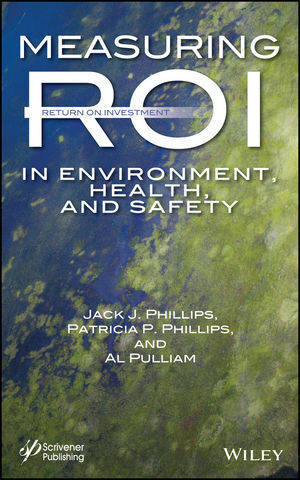
- Retrait gratuit dans votre magasin Club
- 7.000.000 titres dans notre catalogue
- Payer en toute sécurité
- Toujours un magasin près de chez vous
- Retrait gratuit dans votre magasin Club
- 7.000.0000 titres dans notre catalogue
- Payer en toute sécurité
- Toujours un magasin près de chez vous
Measuring Roi in Environment, Health, and Safety
Jack J Phillips, Patricia Pulliam Phillips, Al PulliamDescription
Using the most successful evaluation system in the world for measuring impact and ROI--the ROI Methodology--learn how to measure the success of all business programs and projects involving environmental initiatives, health-related programs for employees and citizens, and various safety programs in all types of settings
Few topics are more important than the health and safety of employees, associates, and citizens. Organizations focus a tremendous amount of money/resources on maintaining a zero-harm approach to its employees, the greater community, and the surrounding environment. At the same time, organizations are implementing many types of wellness and fitness programs ensuring that employees remain healthy, safe, and productive. Measuring ROI in Environment, Health, and Safety shows how to measure the success of all types of programs and projects involving environmental initiatives, health-related programs for employees and citizens, and various safety programs in all types of settings.
Environmental efforts, or green projects, can represent value for organizations. Eighty percent can deliver a positive ROI, and the other 20 percent are often required by regulation. In either case, it is critical to understand whether or not these projects are working. This new book will show step-by-step how to measure the success of many types of green programs. Within an organization, responsibility for environment, health, and safety is often under the direction of the same executive team. Their concern is always about how well the programs are working and, more importantly, what can be done to ensure that they are more successful.
ROI in Environment, Health, and Safety introduces the ROI Methodology, now used by over 4,000 organizations, and the most successful and utilized evaluation system in the world for measuring program impact and ROI. It shows step-by-step how to capture the reaction to the various initiatives and programs a firm may institute, the learning necessary to make them successful, progress in terms of application and implementation, the specific business impact measures driven by these programs, and, finally, the financial ROI. Along the way, data is collected for process improvement to ensure that if certain programs are not working, they can be adjusted for success.
Spécifications
Parties prenantes
- Auteur(s) :
- Editeur:
Contenu
- Nombre de pages :
- 488
- Langue:
- Anglais
Caractéristiques
- EAN:
- 9781118639788
- Date de parution :
- 28-01-14
- Format:
- Livre relié
- Format numérique:
- Genaaid
- Dimensions :
- 157 mm x 236 mm
- Poids :
- 748 g

Les avis
Nous publions uniquement les avis qui respectent les conditions requises. Consultez nos conditions pour les avis.






